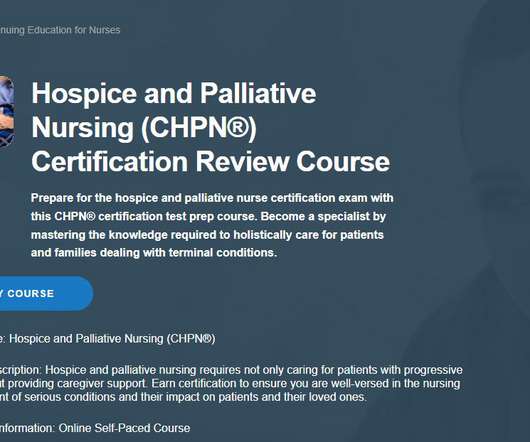Hospice Nurses Take a Holistic Approach to Dementia Care
Nurse.com
NOVEMBER 1, 2022
This ensures that the family and the care team honor the patient’s wishes like determining do not resuscitate (DNR) status, using ventilator support, and providing enteral feedings. A National Institute on Aging blog suggests targeting the patient’s hearing, touch, or sight senses to bring comfort.












Let's personalize your content